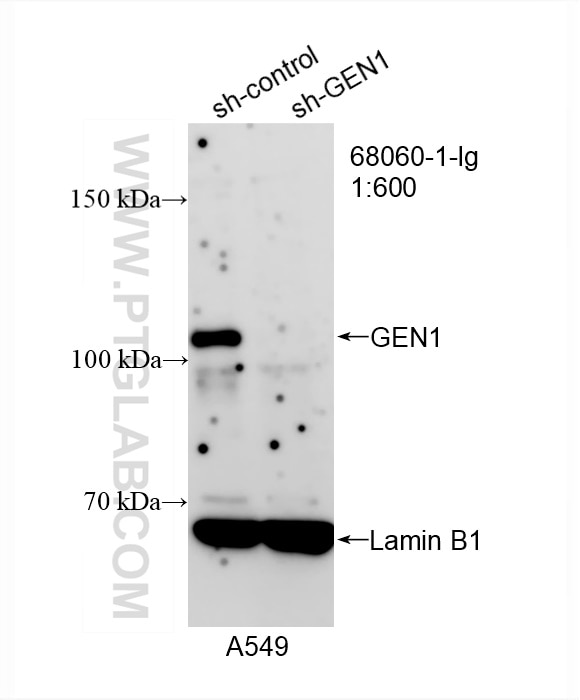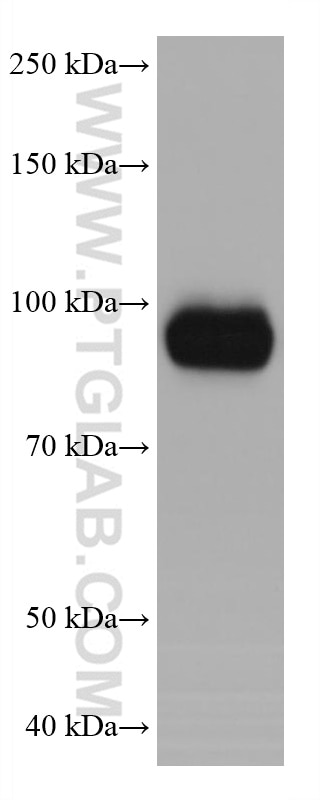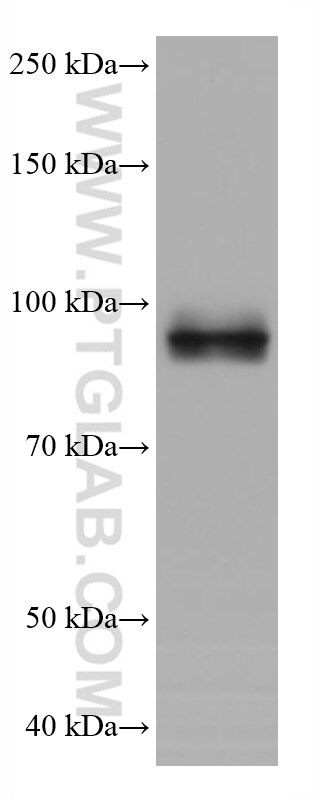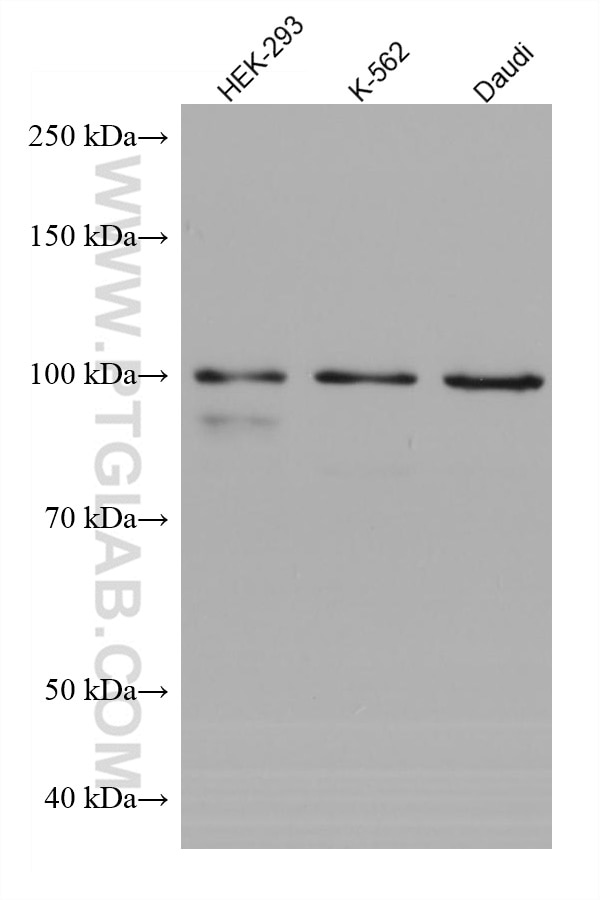Tested Applications
| Positive WB detected in | HEK-293 cells, A549 cells, U2OS cells, K-562 cells, Daudi cells |
Recommended dilution
| Application | Dilution |
|---|---|
| Western Blot (WB) | WB : 1:1000-1:4000 |
| It is recommended that this reagent should be titrated in each testing system to obtain optimal results. | |
| Sample-dependent, Check data in validation data gallery. | |
Product Information
68060-1-Ig targets GEN1 in WB, ELISA applications and shows reactivity with human samples.
| Tested Reactivity | human |
| Host / Isotype | Mouse / IgG1 |
| Class | Monoclonal |
| Type | Antibody |
| Immunogen | GEN1 fusion protein Ag31247 Predict reactive species |
| Full Name | Gen homolog 1, endonuclease (Drosophila) |
| Calculated Molecular Weight | 103 kDa |
| Observed Molecular Weight | 98-100 kDa |
| GenBank Accession Number | NM_182625 |
| Gene Symbol | GEN1 |
| Gene ID (NCBI) | 348654 |
| RRID | AB_2918801 |
| Conjugate | Unconjugated |
| Form | Liquid |
| Purification Method | Protein G purification |
| UNIPROT ID | Q17RS7 |
| Storage Buffer | PBS with 0.02% sodium azide and 50% glycerol , pH 7.3 |
| Storage Conditions | Store at -20°C. Stable for one year after shipment. Aliquoting is unnecessary for -20oC storage. 20ul sizes contain 0.1% BSA. |
Background Information
GEN1 is a endonuclease which resolves Holliday junctions (HJs) by the introduction of symmetrically related cuts across the junction point, to produce nicked duplex products in which the nicks can be readily ligated. GEN1 efficiently cleaves both single and double HJs contained within large recombination intermediates.
Protocols
| Product Specific Protocols | |
|---|---|
| WB protocol for GEN1 antibody 68060-1-Ig | Download protocol |
| Standard Protocols | |
|---|---|
| Click here to view our Standard Protocols |









